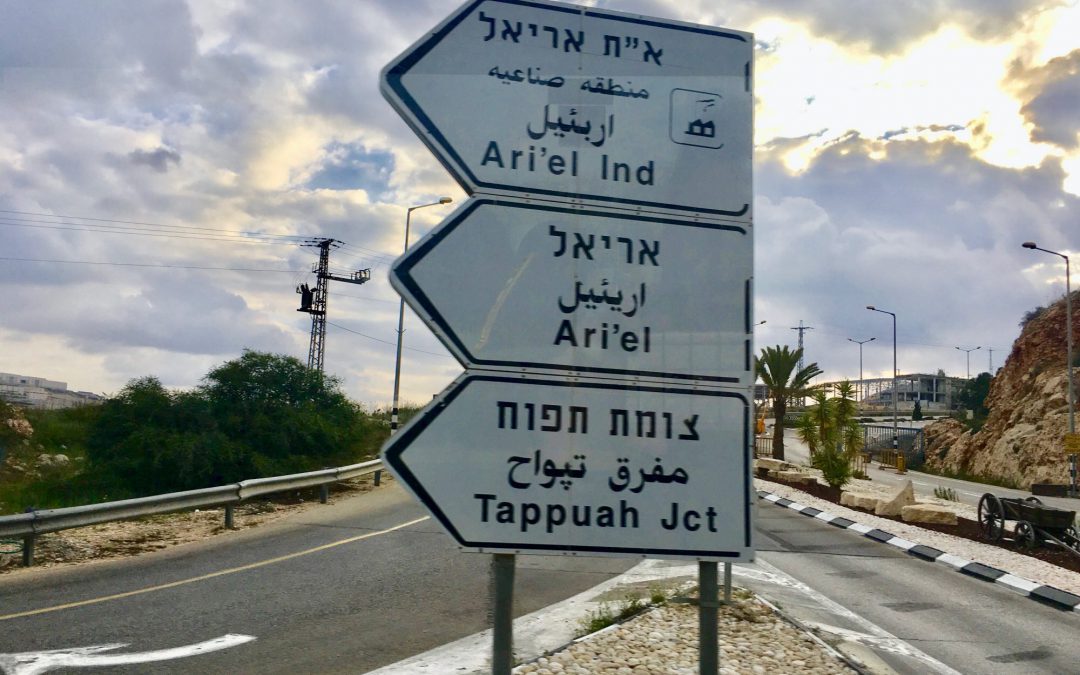WASHINGTON – Embroiled in a corruption investigation, Israeli Prime Minister Benjamin Netanyahu is walking a political tightrope when it comes to settlements and annexation in Palestinian territory, experts said Tuesday.
“Status quo is his middle name,” said Akiva Eldar, former U.S. bureau chief for Haaretz, the oldest newspaper in Israel. But he will be under more pressure from Israel’s “radical right” to annex parts of the West Bank or hold elections to stay in power, Eldar told an audience at the Middle East Institute.
As more and more Israelis settle in the Palestinian territories, those advocating for a two-state solution have called the settlements an obstacle to peace. President Barack Obama had suggested that Israel would need to exchange land with the Palestinians to maintain control over settlement communities in the West Bank if a Palestinian state were established.
“We believe the borders of Israel and Palestine should be based on the 1967 lines with mutually agreed swaps, so that secure and recognized borders are established for both states,” Obama said in a 2011 speech at the State Department. But Netanyahu approved thousands of new settlement units in 2017.
In December 2016, the U.N. Security Council passed a resolution calling for Israel to “immediately and completely cease all settlement activities in the occupied Palestinian territory, including East Jerusalem.” Samantha Power, ambassador to the U.N. at the time, notably abstained from the vote, allowing it to move forward.
On Monday Axios reported that U.S. Ambassador to Israel David Friedman told a closed-door meeting of U.S. Jewish leaders that evacuating settlements in the West Bank could spark a civil war in the region – and according to Daniel Benaim, a senior fellow at the Center for American Progress, he’s right to be concerned about the reaction from more extreme settler movements if they were to be forcefully removed.
“It’s likely that, even if political leadership in the future showed courage, uprooting settlements would still put considerable strain on the societal cohesion of Israel, including the potential for violence,” Benaim said. “That is one reason why the Obama administration worked so energetically to convince Israel’s government not to build them in the first place – because they’re hard to peacefully uproot.”
Although Netanyahu largely ignored Obama’s message, Bashar Masri, a prominent Palestinian entrepreneur, said last year that significant foreign aid to Israel gives the U.S. a major voice in the peacemaking process.
“America plays a vital, significant role,” Masri said. “During President Bush’s time – Bush the father, senior – Israel had to freeze the settlements and it wasn’t a big deal because President Bush said ‘You want to continue to build settlements? No money.’”
Although President Donald Trump’s proposed budget for 2019 requests an additional $200 million in aid to Israel, he has warned Israel to be “very careful” because settlements complicate hopes for peace. Still, he has appeased Netanyahu with the unprecedented decision to move the U.S. embassy from Tel Aviv to Jerusalem, strengthening the relationship between the two leaders. Despite recommendations from Israeli police that Netanyahu should be indicted on corruption charges, Trump will host the prime minister next month.
“I suspect the Trump team might be worried that, should these investigations come to challenge Netanyahu’s grasp on power, he might double down on support from his ‘base’ on the right, at the expense of prospects for peace,” Benaim said.

